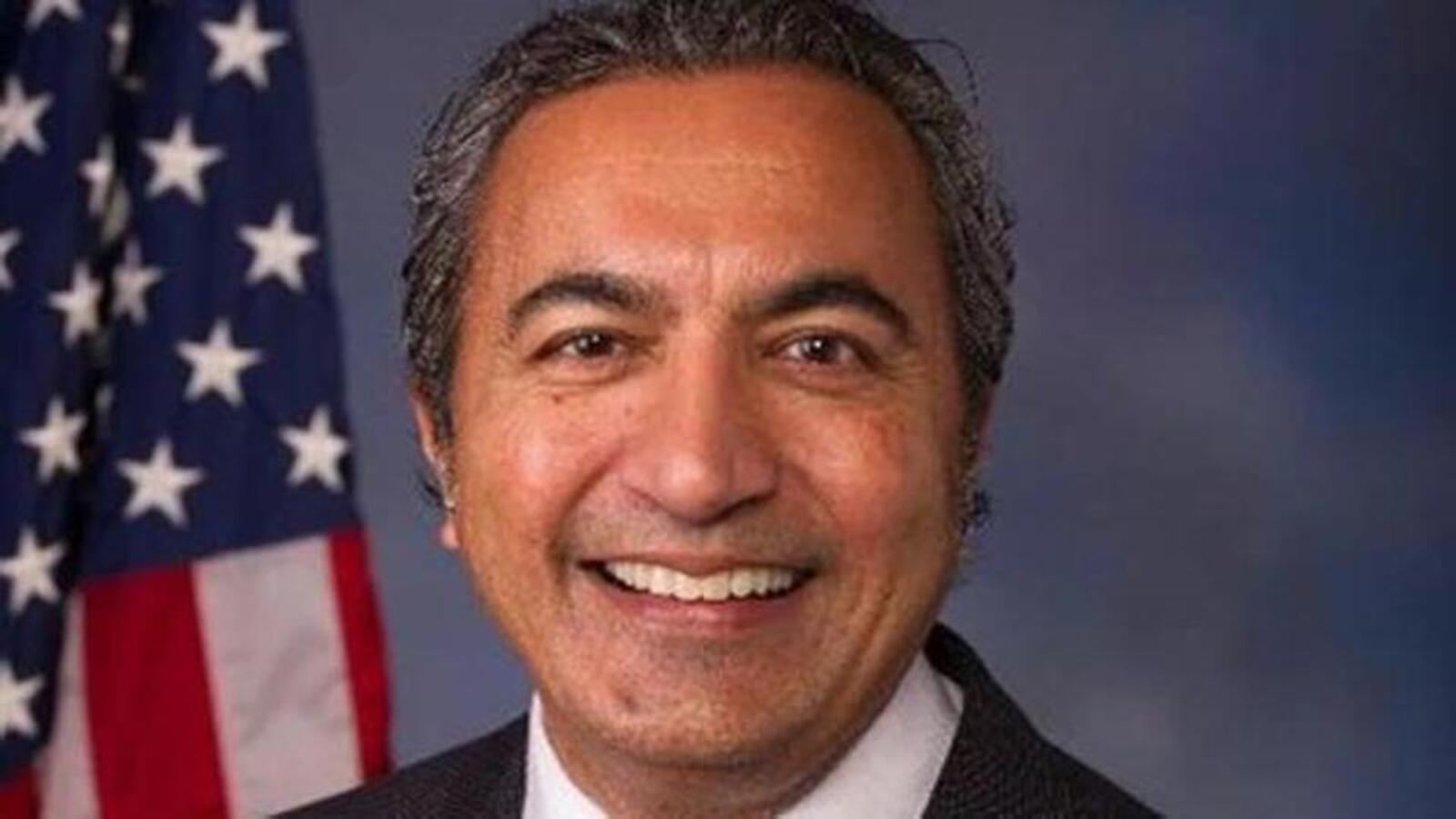Indian-American Congressman and a member of the Intelligence Committee of the US House of Representatives, Ami Bera spoke to HT before India and Pakistan declared a ceasefire about his concerns around the India-Pakistan conflict, the need for an American diplomatic presence to reduce tensions and Pakistan’s ongoing internal terrorism problem.

Q. Could you tell us about your views on escalating tensions we’ve seen between India and Pakistan over the last week or two?
A. Obviously, we’re very concerned with the escalation. As a senior Indian American member of Congress, I saw the heinous attacks in April on innocent tourists in Kashmir. Obviously, we knew there would be some sort of response from the Indian government. And now this kind of back and forth is going in the wrong direction. We’ve talked to the State Department and we’re talking to congressional leadership, and then getting briefed about the situation. The hope is that we can get some pause here and perhaps find a moment where both sides can start a conversation to at least deescalate things.
Q. India launched its military strikes on Pakistan earlier this week calling it Operation Sindoor. The Indian government said that the strikes were proportionate and also justified given Pakistan’s record of sponsoring terrorism. Do you agree with the Indian government’s assessment?
A. Obviously, there was going to be a response by the Indians. Some of these strikes were much further into Pakistan than we’ve seen in past conflicts. Again, the Indian government has said in public statements that they were targeting areas that they believe were terror cells or terror training grounds or recruitment grounds. Pakistan, from their reporting and from what I get from the intelligence community, obviously had their response. It does not seem like India ever left Indian airspace. There were no incursions into each other’s territory. And the hope at that point would be, okay, everyone’s had a response and counter response. Let’s try to deescalate this. But right now, from the reports I’m getting overnight, things have gone in the wrong direction with increased artillery fire and increased bombardment at the line of control on both sides. Civilians are getting caught in the middle here and some people are dying.
Q. You have personally over the last decade called on Pakistan to counter the problem of terrorism within its borders. Could you tell us about your position?
A. Going back to when I was a young member of Congress, the Mumbai attacks happened which were heinous. These cross-border terrorist attacks, as we just saw as recently as last month, need to be addressed. Because if those continue, obviously the Indians are going to respond to protect their citizens and civilians. Pakistan also has a very big domestic terror threat. So that’s something on which the United States works closely with the Pakistani government to address those internal domestic threats. Pakistan is one of the countries that is most targeted by internal terror attacks. I think that is a place the United States can work with Pakistan. But I also think this is a place where the Arab countries which may have different lines of communication with Pakistan like Saudi Arabia, the Emirates and Qatar can help. They can play a role first in mediating a de-escalation of tensions and perhaps getting to a ceasefire. And then, you know, it’s complicated, but perhaps a longer-term solution on the line of control.
Q. What do you think about the Trump administration’s policy? We’ve seen Vice President Vance come out and say that this conflict is none of America’s business. We’ve seen President Trump in the past say that he’s willing to let India and Pakistan figure out the conflict between the two of them. Do you agree with that approach?
A. I don’t. We’re still the United States of America. We’re still the world’s leading power. We should play a role here. We should engage with India. Obviously, we have this burgeoning friendship and partnership with India and also historic relations with Pakistan. Now, we may not be the best mediators here. I think there’s a role for the Arab states to play. They may have different lines of communication with Pakistan and India. But America should not abandon the world stage. I think the world is still a safer place with American engagement. I do agree with the statement at the end of the day, though, that for a longer-term peace, there has to be something that both India and Pakistan can feel comfortable with. But right now, I think this escalation is not good for either country.
Q. Congressman, you also issued a statement recently talking about pushing a long-term solution between India and Pakistan. Could you talk a little bit about that?
A. We’re pretty far away from that at this juncture. But Pakistan – having traveled there in the past in my role as a senior foreign affairs member in the House of Representatives – has real economic challenges right now, real unemployment challenges. Climate change has hit Pakistan extremely hard along with energy insecurity, and so forth. And then on the Indian side, we do see this growing economy and we see India emerging on the world stage. That mismatch is not going to be a good thing as India becomes a stronger country and Pakistan struggles. Are there ways where they both can complement each other? Again, we’re a long ways away from that right now. It’s just a matter of “let’s not go to war, let’s de-escalate things” and then let’s see if, out of this conflict, there’s the ability to negotiate something much longer in terms of cooperation. Obviously, there’s some water sharing agreements and things like that, that are the first small steps.
Q. A final question, Congressman. There is a sense from Trump’s position on the conflict that Washington is disinterested in playing the role of global policeman and global peacemaker. Your sense of this?
A. I think America’s role has certainly changed. The 75 years post-World War II really was an American-led era where we created a security architecture that created relative peace and prosperity around the world. If you look at the election of President Trump in 2024, part of that was the American public saying, hey, wait a minute, we can’t fight all these wars around the world. We can’t provide for European security. They need to provide for their own security. That doesn’t mean America will withdraw from the world. It just means that we also have to focus on the challenges that we have at home. I think that drives some of President Trump’s conversation around trade and tariffs as well, saying, hey, wait a minute, the American taxpayer can’t pay for everything around the world and all that security. Other countries have to step up. Now, I would interpret that to say it’s not America by itself. It’s America in partnership with friends and allies that share similar values and other democracies around the world, other leading economies around the world. America shouldn’t abandon the stage, but other countries should start to take a greater role on the stage. And one of those countries is India. We’ve been a long advocate for India to be a permanent member of the UN Security Council. I certainly think India can play a bigger role in mediating peace in Ukraine. They have lines of communication with the Russians that we may not. They have lines of communication with Iran that we may not. India, as a growing power can and should take a bigger place on the world stage.


















